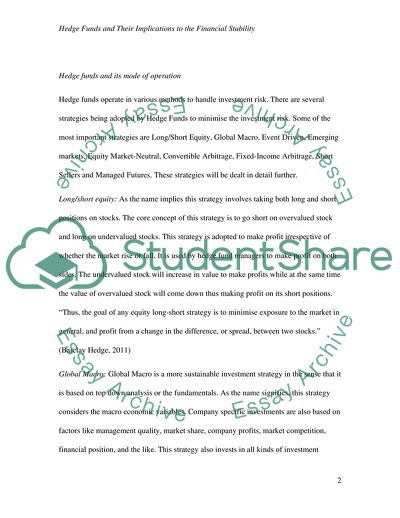Cite this document
(Hedge Funds and Their Implications to the Financial Stability Case Study - 1, n.d.)
Hedge Funds and Their Implications to the Financial Stability Case Study - 1. Retrieved from https://studentshare.org/finance-accounting/1748716-investment-analysis
Hedge Funds and Their Implications to the Financial Stability Case Study - 1. Retrieved from https://studentshare.org/finance-accounting/1748716-investment-analysis
(Hedge Funds and Their Implications to the Financial Stability Case Study - 1)
Hedge Funds and Their Implications to the Financial Stability Case Study - 1. https://studentshare.org/finance-accounting/1748716-investment-analysis.
Hedge Funds and Their Implications to the Financial Stability Case Study - 1. https://studentshare.org/finance-accounting/1748716-investment-analysis.
“Hedge Funds and Their Implications to the Financial Stability Case Study - 1”. https://studentshare.org/finance-accounting/1748716-investment-analysis.


